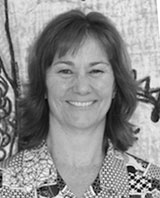The research team has a collective track record of successfully engaging with diverse end users, including the Ministry of Education, Manaiakalani Education Trust, Ngā Kura ā Iwi, and the Pasifika External Advisory Komiti. In the last five years, they have been awarded 20 research and development (R&D) projects which have required working with end users in various governmental, academic, Māori and Pasifika communities. Members of the research team include:
Professor Stuart McNaughton
 Professor Stuart McNaughton is the science leader for the Developing in Digital Worlds project. He is the director of the University of Auckland’s Woolf Fisher Research Centre and New Zealand’s Chief Education Scientific Advisor.
Professor Stuart McNaughton is the science leader for the Developing in Digital Worlds project. He is the director of the University of Auckland’s Woolf Fisher Research Centre and New Zealand’s Chief Education Scientific Advisor.
Stuart has widespread expertise in literacy and language development, and in the design and evaluation of large-scale interventions. He also has proven experience in developing effective educational programmes for culturally and linguistically diverse populations and priority learner groups. Previously, he was a senior researcher in the Ministry of Education’s Starpath and Learning and Change Networks projects.
Stuart is an officer of the New Zealand Order of Merit and the member of a number of national and international committees including The New Zealand Association for Research in Education and the American Psychological Association. He has been appointed as a Distinguished International Professor at East China Normal University (Shanghai), and inducted into the international Reading Hall of Fame. He has published six books, more than forty textbook chapters and over 80 refereed articles.
Stuart holds a PhD, an MA in Education with first class honours, and a BA. His research has several strands, including working on the development of a psychological model of socialisation which provides a means of analysing development within and across settings. Contributing solutions to a long standing difficulty in developmental and educational psychology, Stuart’s research helps to explain the role of culture in teaching and learning. The programme contributes also to the development of more effective and equitable education, and includes assessment tools for language and literacy applicable to both English medium and Māori medium instruction in New Zealand.
Dr Cynthia Greenleaf
 Dr Cynthia Greenleaf has contributed to the developmental descriptives, instructional design phases, and the digital tools of the Developing in Digital Worlds project.
Dr Cynthia Greenleaf has contributed to the developmental descriptives, instructional design phases, and the digital tools of the Developing in Digital Worlds project.
She is the Co-Director of the Strategic Literacy Initiative at WestEd in the USA, and has spent two decades conducting research in adolescent literacy and translating it into powerful teacher professional development. As the director of Project READI, she leads the Strategic Literacy Initiative’s participation in a five-year federal research project to improve adolescent literacy across the United States. Concurrently, she co-directs the five-year RAISE project that is bringing Reading Apprenticeship to 400,000 high school students in five states. Cynthia maintains valuable international research and development networks in the US, as well as knowledge of WestEd implementation.
Cynthia has published major research papers, won highly competitive grants, authored peer-reviewed journal articles and book chapters, and co-authored the bestselling Reading for Understanding. Her dissertation “Computers in Context” was awarded Best Dissertation by the American Educational Research Association, and she has been recognized for her use of multimedia in teacher education with an award from the Association for the Advancement of Computing in Education.
Cynthia received a PhD and an MA in language and literacy education from the University of California, Berkeley, and a BA in linguistics from the University of California, San Diego, where she graduated magna cum laude.
Dr Rashina Hoda
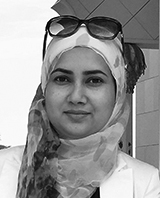 Dr Rashina Hoda is a key researcher on the project for the digital tools (games) strand. She is a senior lecturer of Software Engineering at the University of Auckland and the founder of the SEPTA research lab (Software Engineering Processes, Tools, and Applications), and the industry coordinator for the Electrical and Computer Engineering department.
Dr Rashina Hoda is a key researcher on the project for the digital tools (games) strand. She is a senior lecturer of Software Engineering at the University of Auckland and the founder of the SEPTA research lab (Software Engineering Processes, Tools, and Applications), and the industry coordinator for the Electrical and Computer Engineering department.
Rashina brings expertise in user-centred software design focusing on digitizing education for children. She has led research and development in educational software games and apps in literacy, numeracy, science and special education. Rashina is the study’s Game Design theme leader and the principal investigator on the self-organizing software teams project.
Rashina holds a BSc (Honours distinction) from Louisiana State University, USA, and a PhD from Victoria University of Wellington. Her research specializes in human and social aspects of software engineering and human-computer interaction, including serious game design. She has published over 60 peer reviewed articles, chapters, and papers in conference proceedings with over 850 citations, including in premier venues such as the IEEE Transactions on Software Engineering, IEEE Transactions on Education, Empirical Software Engineering, Information and Software Technology, IEEE Software, the Journal of Systems and Software, and more. She recently received a Distinguished Paper Award at the IEEE International Conference on Software Engineering (ICSE), the most prestigious software engineering publication venue.
Naomi Rosedale
 Naomi Rosedale is a key researcher on the project for the development of digital tools and the family/whānau strand. In seeking to understand how family, educators and society can effectively support children’s involvement in the digital world, the family strand looks at how to strengthen connection between homes and schools through digital learning environments. Naomi is experienced in augmenting quantitative research methods with rich qualitative descriptions of classroom and out-of school learning practices.
Naomi Rosedale is a key researcher on the project for the development of digital tools and the family/whānau strand. In seeking to understand how family, educators and society can effectively support children’s involvement in the digital world, the family strand looks at how to strengthen connection between homes and schools through digital learning environments. Naomi is experienced in augmenting quantitative research methods with rich qualitative descriptions of classroom and out-of school learning practices.
A former school literacy coordinator and secondary teacher, she is proficient in educational research fieldwork, literacy resource, and software and research tool development. Naomi has worked across projects including phase two of Starpath, The Manaiakalani Project, Te Puawai Digital Immersion and Ministry of Education’s Literacy and Language Pedagogy. She has co-authored journal articles, technical reports for the Ministry of Education and Tertiary Education Commission, as well as on the gamification of critical literacy and reading comprehension software.
Naomi’s qualifications include a Bachelor of Arts majoring in English and Education, Graduate Diploma Secondary Teaching, Postgraduate Diploma in Educational Leadership (Distinction) and a Masters of Education (First Class Honours) from the University of Auckland. Her current PhD research investigates young people’s 1-to-1 digital practices with an emphasis on how teachers, parents and Web 2.0 affordances, particularly DLO (Digital Learning Object) creation, can support enhanced student achievement and parent involvement.
Cath Rau
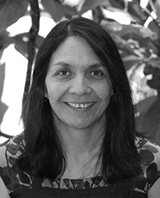 Cath Rau (Ngāti Pūkeko/Ngāti Awa/Tūhoe) leads the Māori educational developments of the Developing in Digital Worlds study, and the study’s Vision Mātauranga components. Her role is to safeguard and promote the interests of Māori and ensure the work is culturally appropriate, meets Māori aspirations for language revitalisation, and contributes positively to the ongoing development of mātauranga Māori.
Cath Rau (Ngāti Pūkeko/Ngāti Awa/Tūhoe) leads the Māori educational developments of the Developing in Digital Worlds study, and the study’s Vision Mātauranga components. Her role is to safeguard and promote the interests of Māori and ensure the work is culturally appropriate, meets Māori aspirations for language revitalisation, and contributes positively to the ongoing development of mātauranga Māori.
Cath is a Māori educational expert who directs the Kia Ata Mai Educational Trust. Through the Kia Ata Mai Educational Trust, Cath has established effective, culturally appropriate processes for engaging with (Māori) individuals and groups within the Māori medium educational sector.
With 35 years’ experience in education, Cath has developed and contributed to a wide range of significant Māori language/literacy development initiatives across all sectors of education from early childhood to tertiary. Providing professional development support to educators in Māori medium settings, Cath has ensured that the developing bilingualism (Māori/English) of students enrolled in these programmes is supported pedagogically.
Cath specialises in indigenous language and culture regeneration and in particular, Māori medium language/literacy development in Aotearoa/New Zealand. She has authored a number of teaching and learning materials for use in Māori medium-schools, and is published in national and international academic publications such as The Companion to Language Assessment (2014).
Dr Rebecca Ngaire Jesson
Dr Rebecca Jesson’s work on the Developing in Digital Worlds project has involved research and digital tool design for the family/whānau and instructional strands. She is a Senior Lecturer at the University of Auckland and the Associate Director of the Woolf Fisher Research Centre. She works with teachers and schools to raise student achievement in literacy, specializing in digital learning environments. Rebecca is principal investigator on The Manaiakalani Project and the LEAP programme in the Solomon Islands, co-investigator on the Summer Learning Journey programme, and the literacy leader for the Pasifika Literacy and School Leadership Programme (PLSLP).
Rebecca holds a PhD, MEd (First Class Hons), BA, DipTchg. Her research interests involve applying theories learning and teaching to achieve acceleration in literacy learning. She sees possibilities for literacy instruction that can be purposefully designed to build upon prior learning as well as prepare students for future learning. With colleagues, she was awarded a Research Excellence Award from the University of Auckland in 2015, and has published numerous peer-reviewed articles. A former primary school teacher, she brings expert literacy and parental guidance knowledge to the team.
Professor Elaine Reese
 Dr Elaine Reese’s contribution to Developing in Digital Worlds is as a developmental adviser. She is a Professor of Psychology at the University of Otago and has worked on numerous large scale national research projects including four Marsden grants from the Royal Society of New Zealand. She is the Education Domain Leader on the national birth cohort study, Growing Up in New Zealand, and has helped establish baseline descriptions of current student achievement levels during Phase One of Developing in Digital Worlds.
Dr Elaine Reese’s contribution to Developing in Digital Worlds is as a developmental adviser. She is a Professor of Psychology at the University of Otago and has worked on numerous large scale national research projects including four Marsden grants from the Royal Society of New Zealand. She is the Education Domain Leader on the national birth cohort study, Growing Up in New Zealand, and has helped establish baseline descriptions of current student achievement levels during Phase One of Developing in Digital Worlds.
Elaine holds an MA and PhD in Developmental Psychology from Emory University in Georgia, USA. She has conducted longitudinal studies of cognitive and social development since 1990 and has been an advisor for Growing Up in New Zealand since 2008. From 2015-2017, she contributed to the preschool phase of an early literacy intervention for the National Science Challenge A Better Start. She has published over 95 journal articles and book chapters, and she is frequently interviewed and invited to give lectures about children’s development here and overseas. Her co-edited book, Contemporary Debates in Childhood Education and Development, was published by Routledge in 2012, and her book, Tell Me a Story: Sharing Stories to Enrich Your Child’s World, was published by Oxford University Press in 2013.
Jacinta Oldehaver
 Jacinta Oldehaver is a researcher on the Developing in Digital Worlds project and a Professional Learning and Development Facilitator at the University of Auckland. In her role on the project, Jacinta has designed and facilitated professional development with participating schools, particularly in the instructional and digital tools strands.
Jacinta Oldehaver is a researcher on the Developing in Digital Worlds project and a Professional Learning and Development Facilitator at the University of Auckland. In her role on the project, Jacinta has designed and facilitated professional development with participating schools, particularly in the instructional and digital tools strands.
Jacinta has worked as a co-researcher on the Talking About Texts project (TAT), and as a literacy adviser on the Pasifika Literacy and School Leadership Programme (PLSLP).
Jacinta holds a Diploma in Teaching, a Bachelor of Education (Teaching), a Postgraduate Diploma and a Masters in Education (Honours). Her research interests include a focus on literacy in low-decile secondary schools and increasing Pasifika participation in high-growth and high-demand industries. Jacinta’s doctoral research seeks to understand how to build, design and employ dialogic processes as appropriate and effective discourse forms for Pasifika learners in mainstream literacy contexts.
Rauhina Cooper
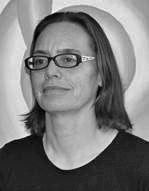 Rauhina Cooper (Ngāti Kahungunu/Ngāi Tahu) is a researcher and Māori educational expert on the project and its Vision Mātauranga components.
Rauhina Cooper (Ngāti Kahungunu/Ngāi Tahu) is a researcher and Māori educational expert on the project and its Vision Mātauranga components.
She is a Professional Learning and Development Facilitator for Kia Ata Mai Educational Trust and a mother of four. She has over 20 years’ experience in education ranging from teaching at primary level through to tertiary, with areas of expertise in Te Reo Māori, Te Reo o te Kaiako, and Te Reo Matatini (Literacy). She holds a Diploma in Teaching and a Bachelor of Education (Teaching).
Tong Zhu
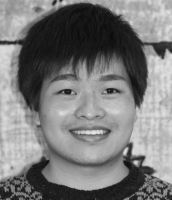 Tong Zhu is the statistician on the project and conducts all the analyses and advanced statistical modelling and data visualisation. Tong has contributed to a diverse range of projects, including the Manaiakalani Project, Manaiakalani Whanau Capability Building and Classroom Instruction, TLRI Porous Learning, and Enhancement of Tertiary Education Strategy Priority Frameworks.
Tong Zhu is the statistician on the project and conducts all the analyses and advanced statistical modelling and data visualisation. Tong has contributed to a diverse range of projects, including the Manaiakalani Project, Manaiakalani Whanau Capability Building and Classroom Instruction, TLRI Porous Learning, and Enhancement of Tertiary Education Strategy Priority Frameworks.
Tong holds a BCom in operational research and BA(Hons) in statistics from the University of Auckland. He is presently completing his PhD under the supervision of Dr Mei Kuin Lai and Professor Stuart McNaughton.
Tong’s current research interests include the analysis of hierarchical structured data (with particular application to New Zealand primary and secondary student achievement data), categorical data analysis, applied statistics and data visualisation.
Angela McNicholl
Angela McNicholl is the Project Manager, providing leadership and monitoring of the project. She has over 10 years’ experience in business operations and project management. With a long and diverse professional background, she has worked in health, telecommunications, and the education sector. Angela is a certified Prince 2 Practitioner.
Dr Lin Sophie Teng
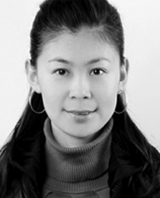 Dr Lin Sophie Teng is a research analyst on the project and was involved in the early childhood education (ECE) data collection. A skilled researcher with rich experience in conducting classroom observations in Early Childhood Centres and primary and secondary schools, particularly in low decile communities, much of her research has involved the areas of literacy and self-regulation. Lin has a strong background in mixed-method approaches and experimental research design, and has developed advanced knowledge of both qualitative and quantitative data analysis (for example, discourse analysis; questionnaire development and validation and structural equation modelling).
Dr Lin Sophie Teng is a research analyst on the project and was involved in the early childhood education (ECE) data collection. A skilled researcher with rich experience in conducting classroom observations in Early Childhood Centres and primary and secondary schools, particularly in low decile communities, much of her research has involved the areas of literacy and self-regulation. Lin has a strong background in mixed-method approaches and experimental research design, and has developed advanced knowledge of both qualitative and quantitative data analysis (for example, discourse analysis; questionnaire development and validation and structural equation modelling).
Trained in China as a TESOL teacher, Lin’s PhD explored how the self-regulated learning (SRL) instructional model in blended learning environments affected learners’ literacy proficiency and their psychological and affective development (for example, self-efficacy and emotional control).
Lin’s research interests include applied linguistics, self-regulated learning (SRL), literacy education, strategy-based writing instruction and structural equation modelling (SEM). Her recent articles have appeared in Modern Language Journal, TESOL Quarterly, Metacognition and Learning, and Assessing Writing, among others.

